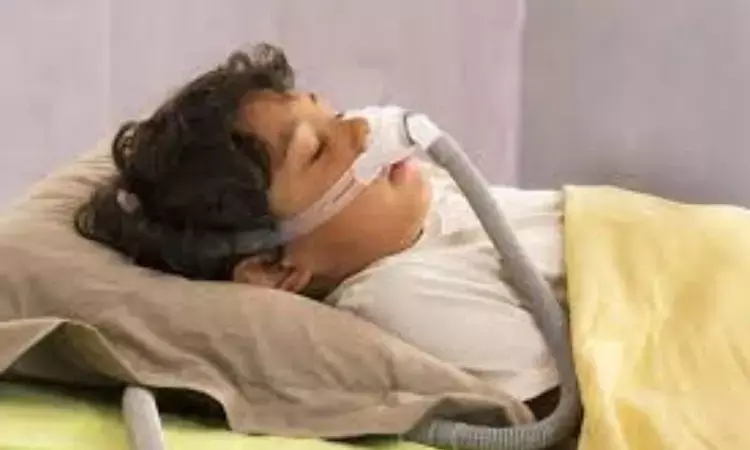- Home
- Medical news & Guidelines
- Anesthesiology
- Cardiology and CTVS
- Critical Care
- Dentistry
- Dermatology
- Diabetes and Endocrinology
- ENT
- Gastroenterology
- Medicine
- Nephrology
- Neurology
- Obstretics-Gynaecology
- Oncology
- Ophthalmology
- Orthopaedics
- Pediatrics-Neonatology
- Psychiatry
- Pulmonology
- Radiology
- Surgery
- Urology
- Laboratory Medicine
- Diet
- Nursing
- Paramedical
- Physiotherapy
- Health news
- Fact Check
- Bone Health Fact Check
- Brain Health Fact Check
- Cancer Related Fact Check
- Child Care Fact Check
- Dental and oral health fact check
- Diabetes and metabolic health fact check
- Diet and Nutrition Fact Check
- Eye and ENT Care Fact Check
- Fitness fact check
- Gut health fact check
- Heart health fact check
- Kidney health fact check
- Medical education fact check
- Men's health fact check
- Respiratory fact check
- Skin and hair care fact check
- Vaccine and Immunization fact check
- Women's health fact check
- AYUSH
- State News
- Andaman and Nicobar Islands
- Andhra Pradesh
- Arunachal Pradesh
- Assam
- Bihar
- Chandigarh
- Chattisgarh
- Dadra and Nagar Haveli
- Daman and Diu
- Delhi
- Goa
- Gujarat
- Haryana
- Himachal Pradesh
- Jammu & Kashmir
- Jharkhand
- Karnataka
- Kerala
- Ladakh
- Lakshadweep
- Madhya Pradesh
- Maharashtra
- Manipur
- Meghalaya
- Mizoram
- Nagaland
- Odisha
- Puducherry
- Punjab
- Rajasthan
- Sikkim
- Tamil Nadu
- Telangana
- Tripura
- Uttar Pradesh
- Uttrakhand
- West Bengal
- Medical Education
- Industry
Vitamin D Deficiency Linked to Increased Sleep Apnea Severity in Children: Study

Researchers have identified that children deficient in vitamin D experience more severe symptoms of obstructive sleep apnea (OSA) than children with sufficient vitamin D levels. A new cross-sectional study published by Dr. Cristina Baldassari and colleagues from the Children's Hospital of the King's Daughters and Eastern Virginia Medical School found that a significantly lower vitamin D level was associated with a greater severity of OSA among children who were scheduled to undergo adenotonsillectomy. This study was published in the journal of JAMA Otolaryngology.
OSA is another common sleep disorder among the children characterized by recurrent complete or partial obstructions within the upper airways while asleep. Previous associations include metabolic dysfunction, cardiovascular disease, asthma, and upper respiratory infections that could potentially influence sleep quality and respiratory function. It is unknown how vitamin D deficiency mechanistically relates to OSA.
Seventy-two children, aged 2 to 16 years with severe OSA were studied. Inclusion criteria for this study are severe OSA, an obstructive Apnea-Hypopnea Index (AHI) of 20 or more, as observed during polysomnography. Patients were recruited from a tertiary pediatric otolaryngology clinic and had no history of neuromuscular disorders or craniofacial abnormalities and no history of tonsil or adenoid surgery before enrollment. Fasting blood samples were drawn for baseline assessment after induction with anesthesia, and the patients were tested for 25-hydroxyvitamin D levels. Deficient was defined as < 20 ng/mL. The obstructive AHI score in apnea and hypopnea events per hour was the primary outcome.
• Compared to those children who were vitamin D deficient, those who had normal levels of vitamin D had a lower mean AHI score by a mean difference of -14.6 (95% CI -27.2 to -2.2), meaning that they experienced fewer severe symptoms of OSA.
• The decrease in serum vitamin D levels at a reduction of 1.0 unit in the serum concentration was associated with an increase in the AHI value of 0.7 (95% CI: 0.04 - 1.40); even mildly decreased levels of vitamin D enhance the severity of OSA.
• Univariate analysis indicated that vitamin D deficiency was associated with younger age (mean difference -5.0 years, 95% CI -7.2 to -2.8), Black race (OR 4.3, 95% CI 1.4-14.3), and female sex (OR 4.8, 95% CI 1.7-12.5), although these associations lost significance in the multivariable model.
This study identified a clear association between vitamin D deficiency and greater severity of OSA in children, leaving the implication that correcting deficiency may be a means for improving outcomes for sleep apnea. Vitamin D supplementation may represent an easy-to-implement, accessible manner to enhance OSA treatment in children, pending more research, as it remains a "low-hanging fruit" for intervention.
Reference:
Bluher, A. E., Kearney, T., Vazifedan, T., & Baldassari, C. M. (2024). Vitamin D deficiency and pediatric obstructive sleep apnea severity. JAMA Otolaryngology-- Head & Neck Surgery.https://doi.org/10.1001/jamaoto.2024.3737
Dr Riya Dave has completed dentistry from Gujarat University in 2022. She is a dentist and accomplished medical and scientific writer known for her commitment to bridging the gap between clinical expertise and accessible healthcare information. She has been actively involved in writing blogs related to health and wellness.
Dr Kamal Kant Kohli-MBBS, DTCD- a chest specialist with more than 30 years of practice and a flair for writing clinical articles, Dr Kamal Kant Kohli joined Medical Dialogues as a Chief Editor of Medical News. Besides writing articles, as an editor, he proofreads and verifies all the medical content published on Medical Dialogues including those coming from journals, studies,medical conferences,guidelines etc. Email: drkohli@medicaldialogues.in. Contact no. 011-43720751


